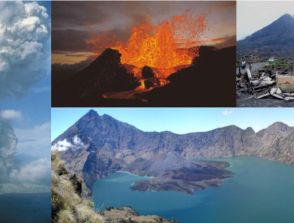Trans-theoretical deep learning prediction of magma properties
15/01/2020
IPGP - Îlot Cuvier
10:00
Séminaires Systèmes Volcaniques
Salle 310
Charles Le Losq
IPGP
Predicting whether a volcano will ‘flow’ or ‘blow’ is vitally important if you live next to one. Among parameters that will determine this, the chemical composition of magma plays an important role because it directly controls magma viscosity, hence mobility and fragmentation probability. It is well know that silica-poor basaltic magmas tend to be very mobile, leading to effusive eruptions like those common in Hawaii (U.S.A.), whereas silicic magmas (e.g. trachyte or rhyolites) tend to be associated with more explosive eruptions. However, this general correlation is contradicted by many exceptions, like rhyolite domes and lava flows common in northern California. Recent work suggests that, for silicic magmas, subtle variations in their chemical composition can be a key factor in determining transitions between effusive and explosive eruptions, but the specifics of this relationship are unclear. How, then, can we better understand and predict the dynamics of a volcanic eruption? To answer this question, we must dive into the molecular origin of the link between the chemical composition of magmas and the eruptive style of volcanoes. In this talk, we will review the structure of aluminosilicate melts. In particular, we will discuss the important role of aluminum, metal cations and water in determining their physical properties like viscosity, and, hence, the faith of volcanic eruptions. We further will see why current approaches to model melt viscosity are incomplete, and how a better model combining thermodynamics and machine learning can be developed for the precise prediction of various melt and glass properties. Among numerous possible transferring and applications, this model will allow studying more precisely the role of magma viscosity on the dynamics of volcanic eruptions.




